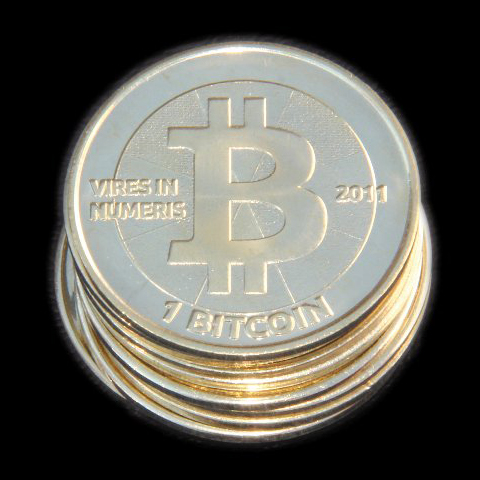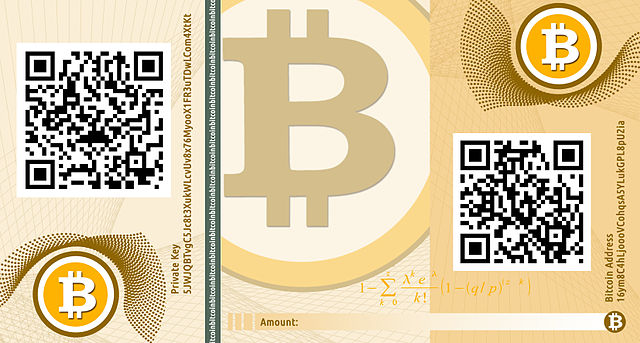By Niels Vandezande
In the last few months, international media have reported extensively on the latest developments in the online economy. These reports have focused mostly on the rise of so-called cryptocurrencies, with bitcoin being the most well-known example. Such cryptocurrencies are characterized by their decentralized nature, meaning that they aren’t controlled by a central government. As such, their emission is controlled by an algorithm rather than by economic imperatives. While originally used by only a small group of enthusiasts, bitcoin has now captured the attention of the global economy and lawmakers. It has given impulse to the creation of several other cryptocurrencies, some of which are known for their community efforts — such as dogecoin — and others which are known for being named after a celebrity — which isn’t always appreciated.
While this rise of cryptocurrencies certainly has economic potential — with bitcoin alone having a current market capitalization estimated at over USD 5 billon — the last few months have also exposed a number of the less pleasant issues. These issue range between its role in, for instance, an online black market, theft, and money-laundering. One of the important contributing factors in this, is that cryptocurrencies have for long operated within a legal gray zone. From the beginning, it was unclear whether — and if so, which — existing regulation could be applied to this phenomenon. But for as long as this development played only a marginal societal role, specific legislative initiative attempting to regulate this matter wasn’t seriously considered.
This position of laissez-faire seems to be changing now. Just last week, for instance, the US Internal Revenue Service (IRS) released a notice in which it holds that cryptocurrencies should be considered as property for taxation purposes. Other governments have also tried their hand at finding a legal basis for the use of cryptocurrencies. However, in most of such discussions, lawmakers’ and governments’ efforts remain mostly limited to providing for the taxation of gains made from transactions involving cryptocurrencies.

This is why the European Commission’s proposal for a review of the Payment Services Directive (Directive 2007/64/EC) could have been a great opportunity to explore the possibilities for a more fundamental overhaul of the legal framework regulating most of today’s online payments. Online payments focus more and more on mobile technologies, and now also include the use of non-governmental currencies. However, the currently existing framework set by the Payment Services Directive and its close companion the E-money Directive (Directive 2009/110/EC) isn’t suited to extend to the complete field of online payments.
A new proposal in this matter could have merged the closely related matters of payment services and e-money. It could have expanded the scope to emerging technologies. It could have taken a more direct approach in addressing non-governmental currencies. All of such approaches could have provided the user of mobile payment technologies and cryptocurrencies with more legal certainty regarding the protection that is — or isn’t — offered to him by the law.
The European Commission’s proposal, however, takes a different approach. First, it was decided that due to the late implementation of the E-money Directive, there wasn’t sufficient practical experience with this framework to allow for a review. As a result, payment services and e-money will for the time being remain subject to separate legal instruments. Second, the proposed new Payment Services Directive doesn’t deviate much from its predecessor. It still aims to cover a broad definition of ‘payment services’, with a wide range of exemptions from that scope. The scope has been somewhat enlarged, now also covering ‘payment information services’ and ‘payment initiation services’. These are both services aimed at providing access to a user’s payment account at another service, thus not disposing of the funds moved on said account.
Under the original Payment Services Directive, the unclear formulation of the scope exemptions has resulted in different interpretations between EU Member States. Moreover, it was found that this uncertainty allowed market players to adapt their business models in order for them to fall into the negative scope of the directive, thus being exempt from having to comply with this legal framework. The new proposal aims to tighten the scope of the exemptions mostly by introducing new terminology. Such terminology — including formulations as ‘precise needs’, ‘specific instruments’, and ‘used in a limited way’ — hasn’t been properly defined in itself, thus leaving room for even more broad and divergent interpretations. Only the so-called ‘added value’ exemption has been made more clear due to the addition of a value limitation. As a result, this scope exemption will only apply to single transactions of maximum EUR 50 and cumulative transactions of maximum EUR 200 per billing month.
While the proposed review of the Payment Services Directive does include a few good points — such as the inclusion of additional service providers, new measures aimed at raising security and transparency, and the inclusion of a value limitation in one of its scope exemptions — the overall feeling remains that good opportunities have been left unused. As the online economy continues to grow in the direction of mobile payment solutions and the use of cryptocurrencies, the legal questions underlying these matters are becoming increasingly urgent. For the time being, it is clear that the answer won’t be found in the EU’s regulation of payment services and e-money.
Niels Vandezande is a legal researcher at the Interdisciplinary Centre for law & ICT (ICRI) — iMinds at the KU Leuven – University of Leuven, Belgium. A more in-depth analysis of the issues touched upon in this post can be found in his article “Between Bitcoins and mobile payments: will the European Commission’s new proposal provide more legal certainty?”, published in the International Journal of Law and Information. Follow him on Twitter @NielsVandezande.
The International Journal of Law and Information Technology provides cutting edge and comprehensive analysis of Information Technology, communications and cyberspace law as well as the issues arising from applying Information and Communications Technologies (ICT) to legal practice.
Subscribe to the OUPblog via email or RSS.
Subscribe to only law articles on the OUPblog via email or RSS.
Image credit: Physical Bitcoins by CASASCIUS. Work released into public domain via Wikimedia Commons.
The post Searching for more legal certainty in bitcoins and mobile payments appeared first on OUPblog.




